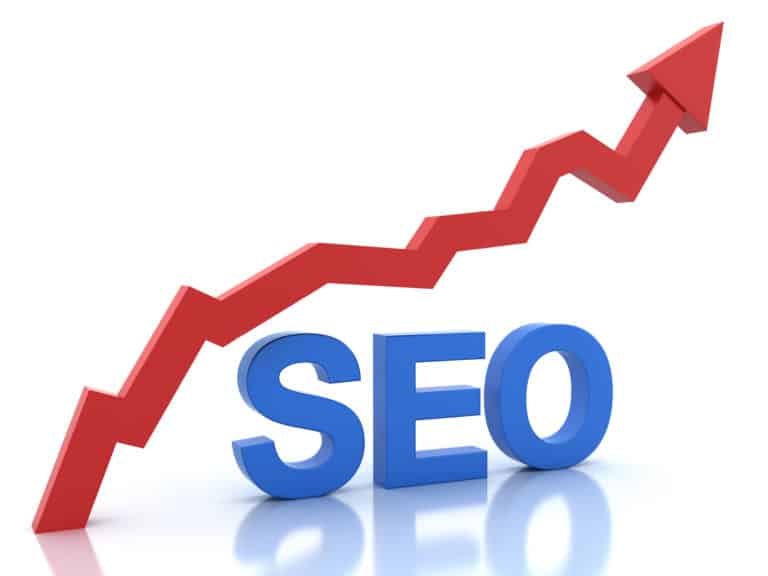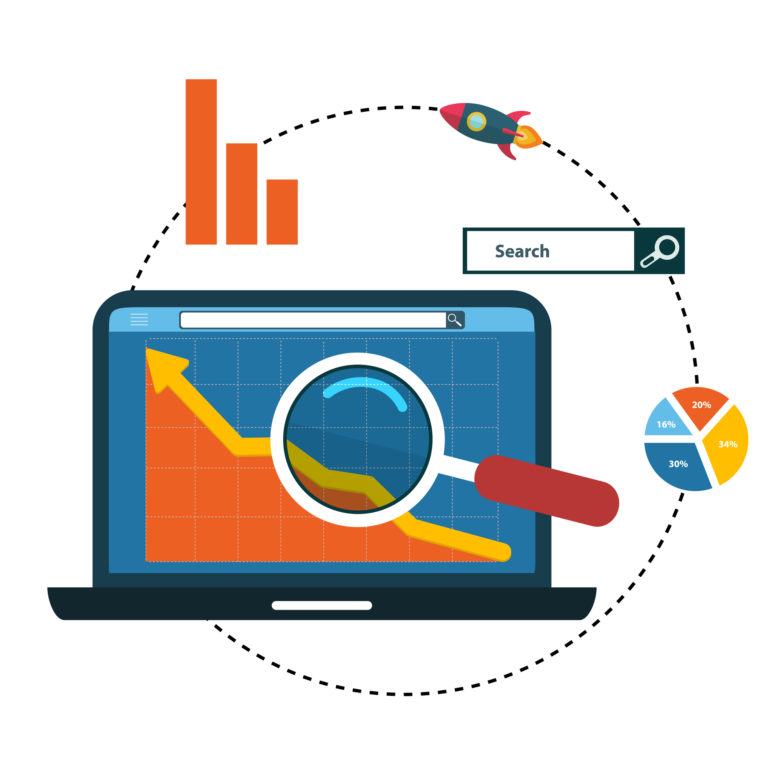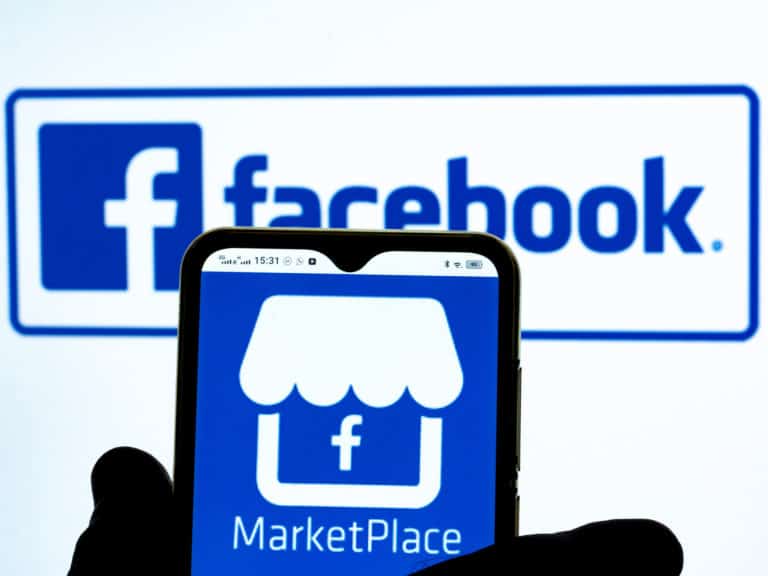
Oh boy. It’s time to open Pandora’s Box. Opinions are divided on social media’s importance for your SEO campaign, but you can’t hide from the facts. And you shouldn’t focus on just one platform, either.
The SEO landscape regularly changes state. Every three months or so, Google holds the SEO world to ransom by implementing various algorithm changes – often at the drop of a hat.
If you don’t follow the new and imposed guidelines, then you get to watch your SEO rankings descend with gusto. But at least you get to watch it for free.
These changes leave us SEO geeks well vexed in the art of running after a moving target. It’s about the only exercise we get. Unless you count eating. That’s movement, right? We’re all in shape, anyway, as ’round’ is a shape.
Furthermore, regardless of how you view social media – like it or not – those demanding and time-hungry social platforms remain a constant force throughout any of Google’s Core Algorithm Updates. The lay of the land may change, but social media remains a continuous presence in modern-day SEO and digital marketing. In the same way as Britney Spears’ Father looms over her every move. See, we can be topical too.
While the likes of Facebook, Youtube, and Twitter were once a novelty, and primarily used by egotists who based their business around themselves as a personality cult (rather than around a service), these social platforms are now one the cornerstones in SEO success.
Suppose you want to gain a user’s trust and eventually convert them into a client. In that case, you need to have a presence on Facebook, Instagram, LinkedIn, and Twitter. Boasting only of citation listings in the Yellow Pages doesn’t cut the mustard anymore.
Regularly updating your social media proves that you exist and are an active business. Nothing screams ‘danger’ to a new generation of client quite like a dormant social media profile.
While some traditional marketing methods are becoming obsolete, SEO is undoubtedly here to stay. As such, appeasing the Google and Bing Overlords is necessary for continued growth and, dare we say it, survival in a contemporary business environment. Let’s dive in for a closer look.
The Impact of Social Media on Your Seo

First off, maintaining and building a strong SEO campaign relies heavily on content. And when we say ‘relies heavily’, we mean really heavily. Think of how Lex Luthor depends on Kryptonite. Yeah. Like that.
The primary way social media can indirectly assist in bumping up the SEO rankings stems from content promotion. You could produce the finest content in the world, but if people don’t know it exists, they can’t consume it.
The likes of Twitter, YouTube, and Facebook allow your quality content to be promoted – largely for free – to mass audiences. Some say that social media is one of the quickest and most effective ways to push SEO-infused content. And we’d be inclined to agree.
We will clarify that the incoming links from shares on social media don’t have the same SEO pulling power as they do from resource platforms (like .gov websites, for example) and other high-quality sites. But they can still influence your bounce rates and engagement.
Any form of positive impact on those particular metrics can then be communicated back to the search engine bots (like the little friendly* Terminators they are).
Remember – if someone shares something within a social media platform, Google and Bing don’t consider this action a ranking signal. But the engagement metrics are viewed in a different light. They very much are a ranking signal.
The greatest goal with social media platforms, in regards to your organic SEO, will always be to share content and motivate engagement for driving traffic to your website. Double bonus points for targeting a qualified audience (defined as ‘those who know what they are looking for’. Not those with a high level of education)!
Social Media Helps with Link Building for SEO
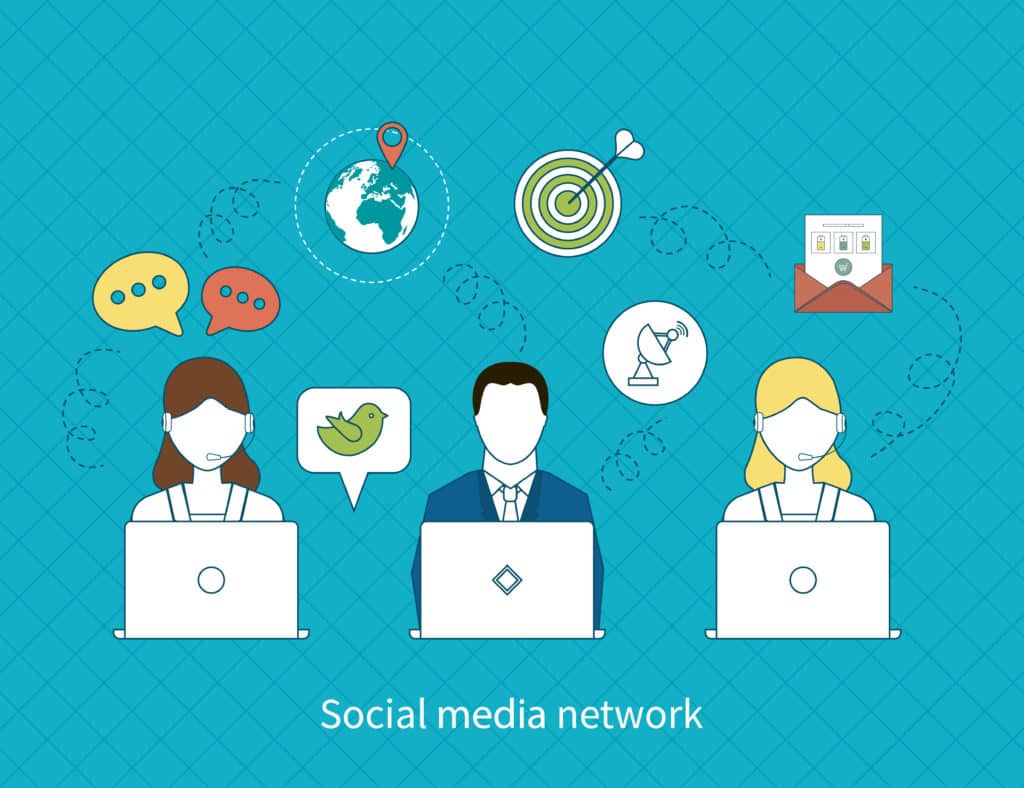
As a further bonus for utilizing social media, sharing on social platforms can lead to link-building benefits. The best form of linkback is from authentic and influential websites. These influencers (not the wishy-washy whiney narcissistic kind who lives for vanity, we mean the well-respected business type) use social media just as much as everyone else.
To build high-value link backs from influencer-level marketing bodies can be almost impossible without first applying strategies across social media. This is another reason why having authoritative content is king, as they won’t share your article or blog unless it’s high-quality stuff. Getting their attention is only half the battle. You need to have a viable product.
Don’t forget, all of this activity feeds into your brand awareness, which is a mighty big chunk of the SEO pie. Brand awareness might sound like a digital marketing ploy rather than something that directly affects Search Engine Optimization. But trust us. It really, really, really does.
How? Brace yourselves, as it’s remarkably simple. Increasing your reputation and mentions (or hashtags, if you’re hip) on social media through the use of consistent and engaging material leads to a higher brand presence. Thus, the more branded searches your business receives, the higher you will rank for non-branded keywords. The package is complete!
Except, you need to run this sort of activity across as many social media platforms as possible. Here’s why…
Don’t Put All Your Focus on Only One Social Media Network!
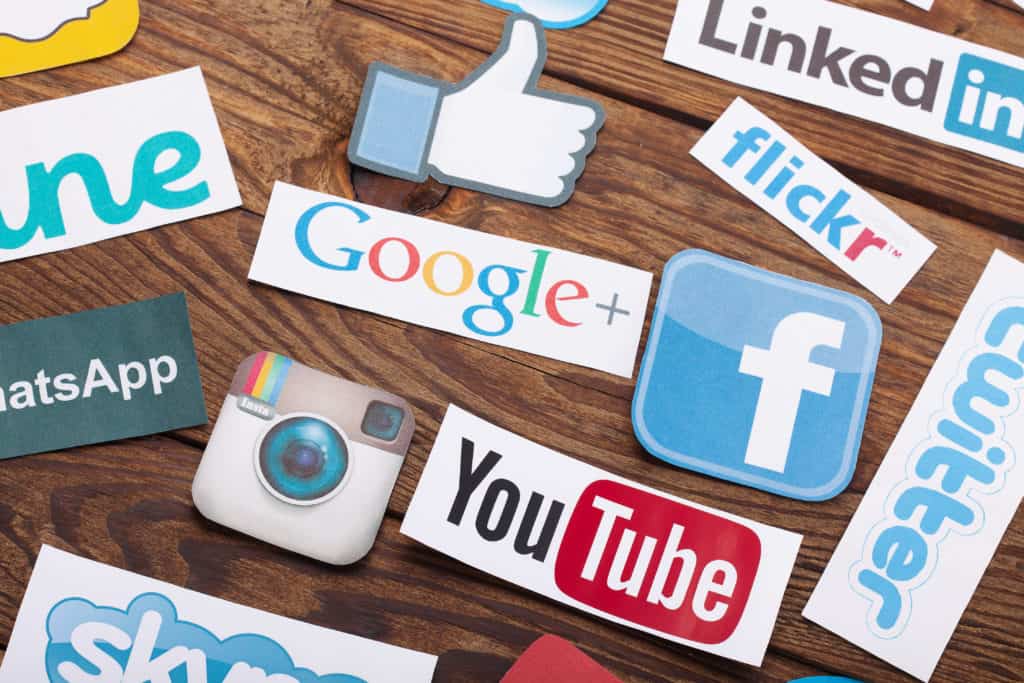
It’s easy to fall into the social media trap and focus on only one network or platform. This is risky in all sorts of ways. As a lesson for all businesses – not just those in healthcare – depending on only one social channel for your marketing and SEO is neither sensible nor sustainable.
It’s worth pointing out at this stage that you don’t own the networks upon which your social media presence is built. For a comprehensive strategy, an integrated and multi-channel approach is required.
For starters, you aren’t broadening your spectrum to include the entire available market audience. By focusing on only one platform, there are whole realms that remain unaware of your presence, updates, services, or existence. Not everyone uses Facebook, but they may be active on LinkedIn – for example.
It’s common to discover one network outperforms the rest. Therefore we wouldn’t steer you away from spending more time (and subsequent budget) to generate the best results from your most powerful platform.
But what about if you are getting no engagement from other networks? While it’s tempting to quit a social platform when receiving less return than most shareholders did from Enron, we’d encourage you to keep ‘lesser channels’ alive.
Why?
Well, if your chosen platform is the only network you have, you’ll find yourself between a rock and a hard place when that network goes down.
Not only will you be unable to post and interact, but when people find your business page through the search results, and their entry request meets with a dead end, you’re unlikely to retain their interest or custom.
It’s also a healthy practice to spread your audience across different social media platforms to gain cross-promotion potential and build your email list. It also gifts the opportunity to share content through tailored posts. Every platform has a preferred tone; content that does well on Facebook may not translate quite so well on LinkedIn, and vice versa.
Not to mention how more social media platforms can also lead to a greater number of backlinks to your site. We’re pretty sure you’ve figured that out already!
When the Social Platform Goes Down

Social media platforms have a habit of disappearing from the radar every so often when technical issues make themselves apparent. There have been periods exceeding 10 hours where both Facebook and Instagram have gone offline, courtesy of digital gremlins. Twitter has often been affected, too.
Besides the endemic-level panic that spreads between brands and influencers who rely on these platforms to generate income, there’s also an element of distrust that builds with platform users when a social network goes offline.
Suppose Facebook and Instagram crash and burn for a while. In that case, users are more likely to purview other platforms until things become sorted – especially if there has been a data leak or frame-wide incident of hacking. When security is concerned, users will often jump ship – sometimes indefinitely. And if you aren’t on their preferred social media provider, then you’ve just lost yourself a potential client.
Then there’s the case where a social platform is taken down. Remember Bebo? Those who had their sole online business presence on Facebook’s lesser cousin lost everything.
Then there’s the case where the platform is re-invented, and profiles are lost. We’re looking at you, Myspace.
Social Media and SEO: Boiled Down
![]()
Ok, we understand that you’ve maybe been presented with information overload. So let’s boil this all down.
Basically, social media is really important for your SEO. It works wonders in improving your website’s organic SEO ranking across the likes of Google, Bing, and Yelp!
By utilizing each platform with content promotions, increased engagement, successful link building, and boosted brand awareness, you can successfully leverage social media traffic into benefiting your organic traffic metrics.
Those hallowed metrics and conversions can leapfrog your business up the rankings, as these metrics all gain the search bot’s attention and trust.
However, you can’t just focus on one platform. By all means, give time to the venues where you receive the most significant results but, if placing all your eggs in the same basket, you are playing a risky game.
In short – post great content on a regular basis and ensure you have comprehensive coverage across all the social media channels that you see fit. By doing so, you’ll reap the benefits. Trust us on this one.
And don’t forget, behind every statistic and metric reading is a beating human heart. Before you think about investing in social media for that return on investment, look at proceedings from the user’s viewpoint. After all, it’s the user experience that drives success in digital marketing and Search Engine Optimization.
Get in Touch with Us!
Looking to talk about social media and the impact it has on Search Engine Optimization a bit further? Get in touch with us through our contact page. We’d be happy to help!




